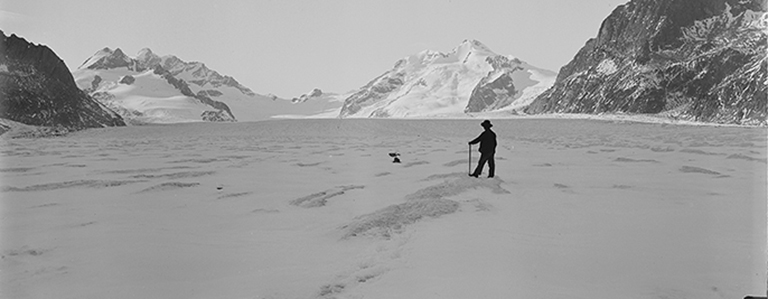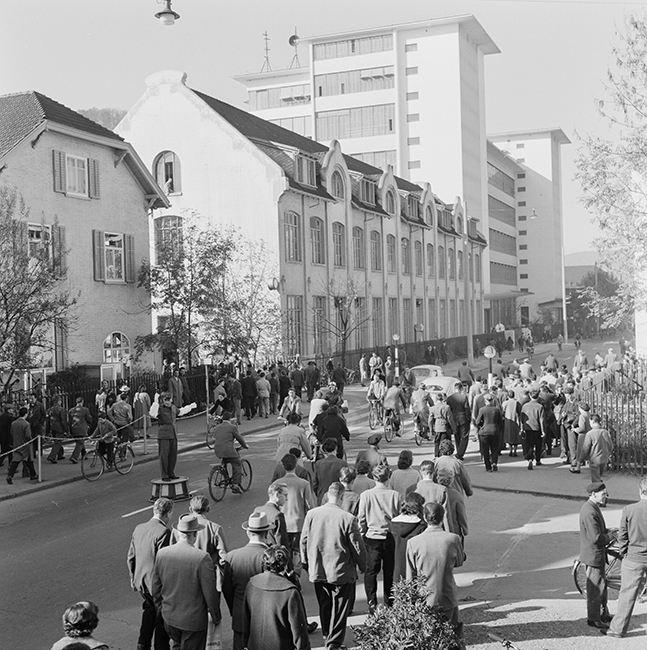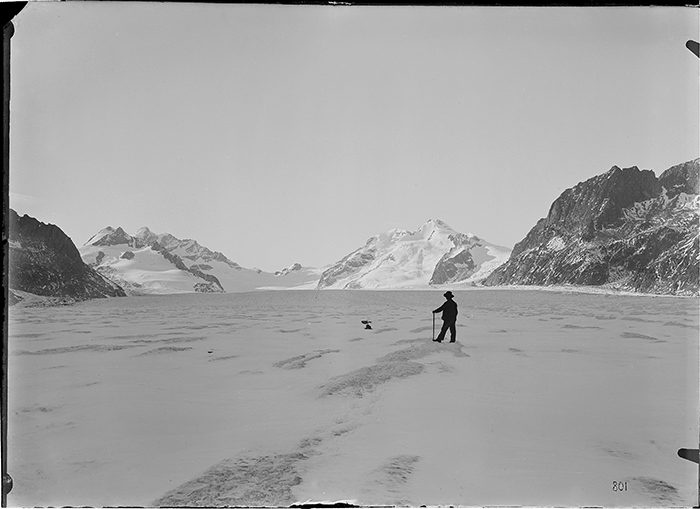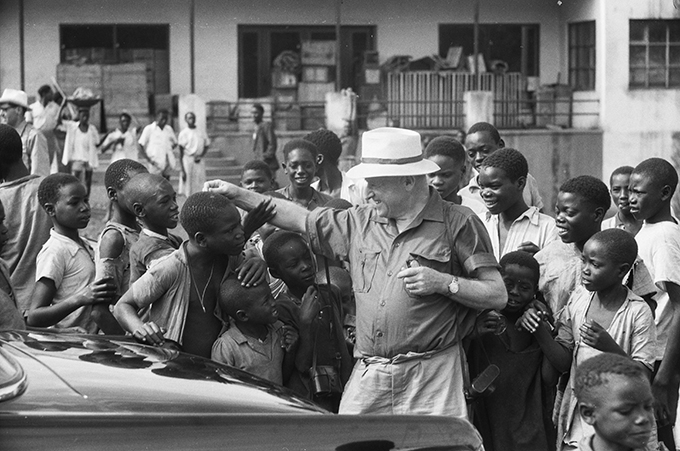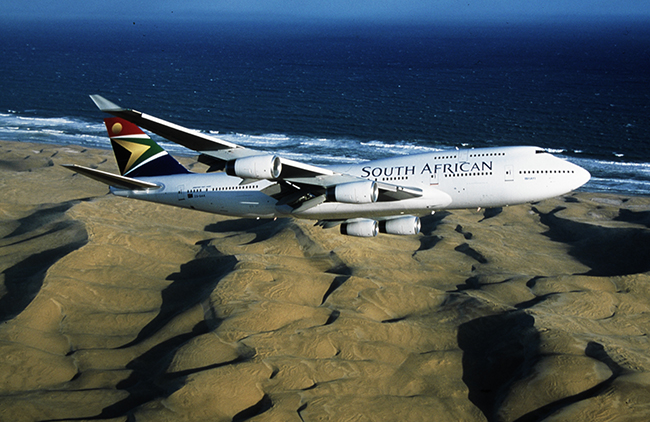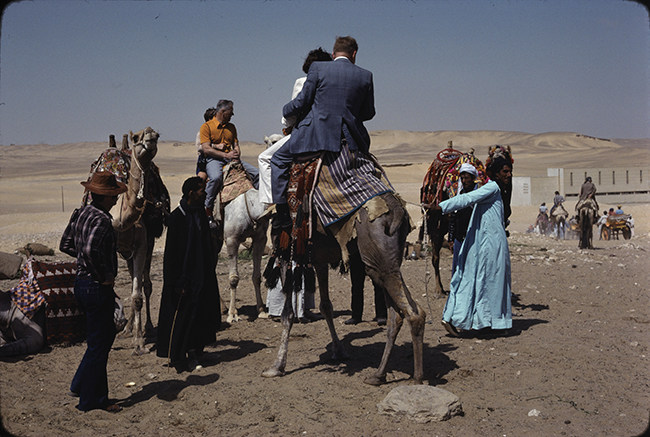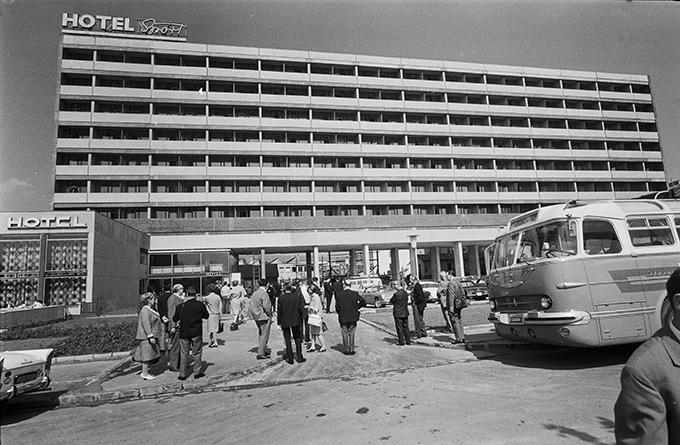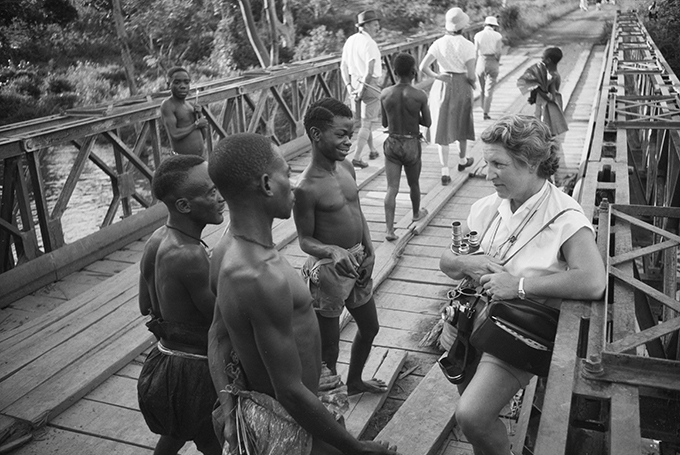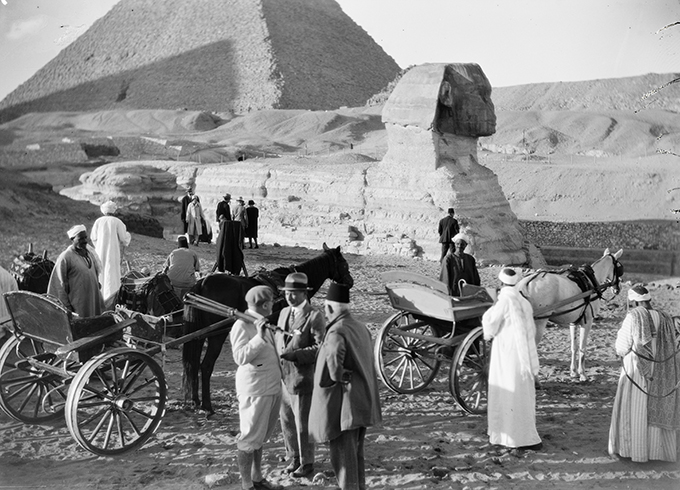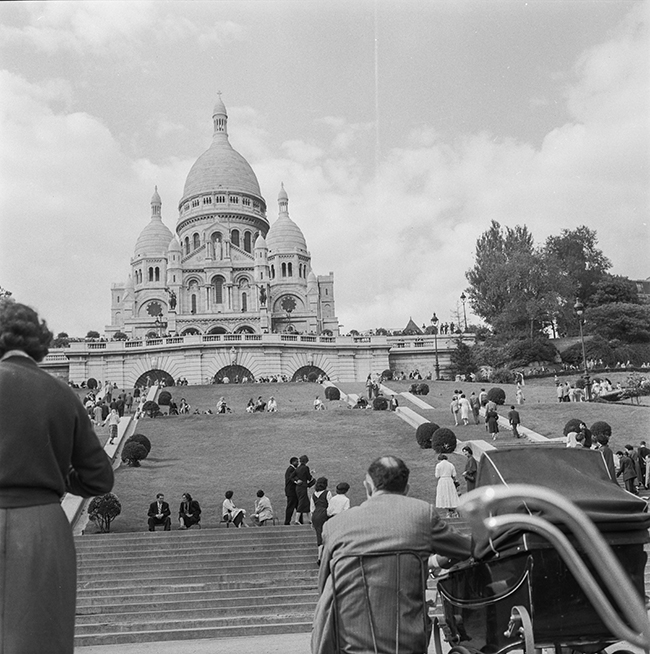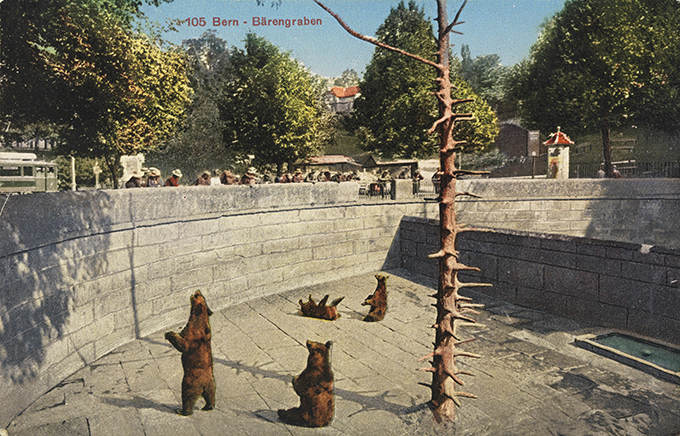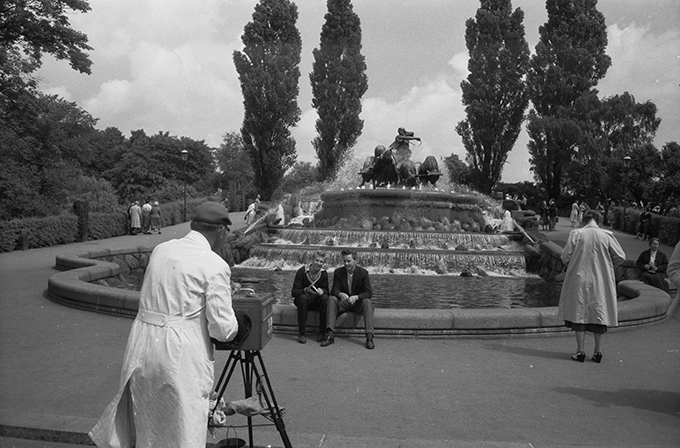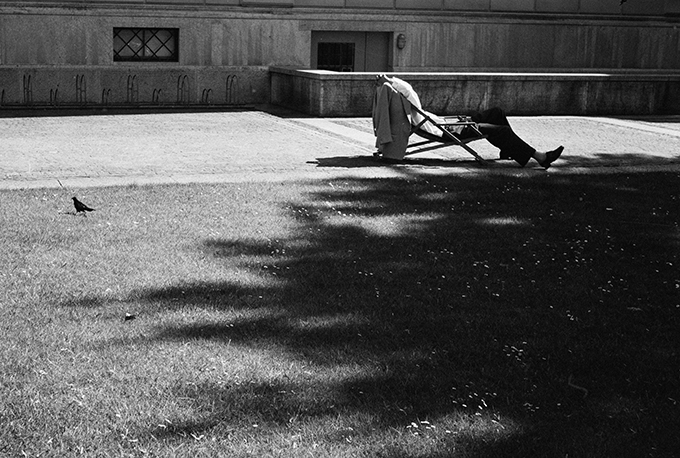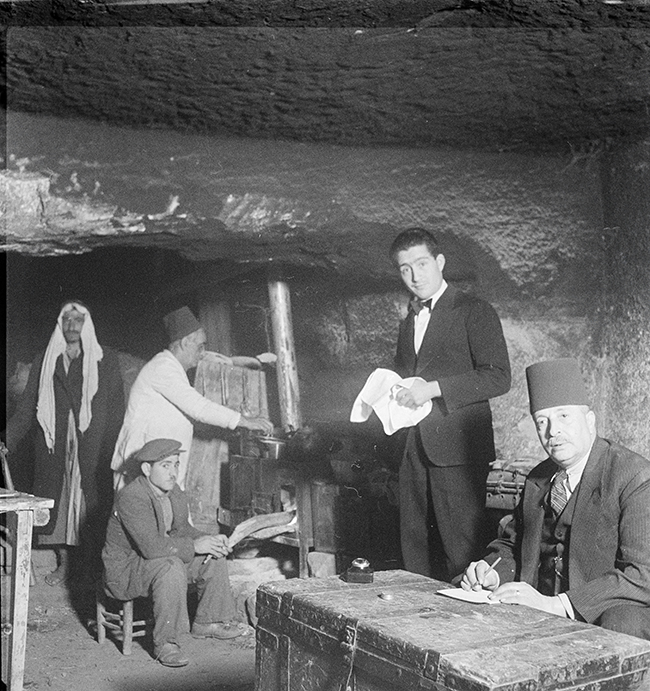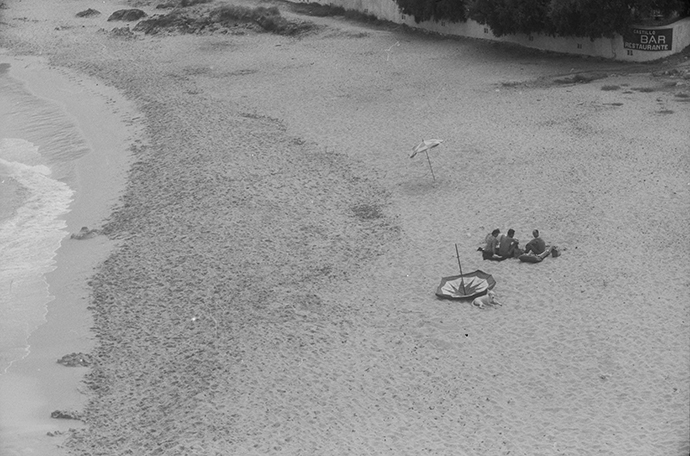Gibt es die typische Touristin oder den typischen Touristen überhaupt? Die Ausprägungen des Tourismus sind so vielfältig wie die Menschen selbst. Deshalb hier anstelle einer unmöglichen Definition, Geschichte, Systematik oder Typologie ein paar verstreute Impressionen aus der weiten Welt des Tourismus.
Comet Photo AG: Baden, Verkehr und Industrie, Oktober 1957 (Com_M06-0326-0002)
What is tourism? In essence, it is travel in pursuit of pleasure and an escape from everyday realities (Eric Zuelow, S. 9).
Otto Lütschg: Aletschgletscher, Blick Richtung Konkordiaplatz (Hs_1458-GK-B005-1913-05)
Jack Metzger: Kongoreise, 1957 (Com_L06-0267-0001-0022)
The prototypical tourist, in search of authentic experience unavailable in modern society, «is one of the best models available for modern-man-in-general» (Robert Fletcher S.14).
Swissair: Boeing 747-444 der South African Airways im Flug, um 2000 (LBS_SR04-014272)
Mowforth and Munt describe mass tourism as the pursuit of the standard four S’s (sun, sand, sea, and sex) while alternative tourism emphasizes three T’s (trekking, trucking, and traveling) (Robert Fletcher, S. 8).
Gustav Neuenschwander: Sakkara, Touristen beim Serapeum, April 1978 (Dia_298-00032)
The tourist ‘bubble’ consists of those infrastructural arrangements that permit the professional reception of guests – such as hotels, lodges, personnel, and general logistics. Inside this ‘bubble’, the tourist travels, arrives and is housed, an intermediary organizational layer protecting the visitor from the unfortunate features of the destination while permitting some view to the outside. It is the ‘bubble’ that interacts with the guest society, and thus stands central in the dynamics of the tourist encounter (Van Beek/Schmidt, S. 13).
Jules Vogt: Budapest, Hotel Sport (Com_L15-0398-0012-0001)
Now people want to go paragliding, waterskiing, diving or a variety of other things. Tribes hidden away in isolated rainforests offer a comparable level of appeal, a type of tourism called “human safaris” in which travelers seek voyeuristic sightings of members of uncontacted tribes (Eric Zuelow, S. 176).
Jack Metzger: Kongoreise, 1957 (Com_L06-0267-0002-0004)
Je hais les voyages et les explorateurs (Claude Lévi-Strauss, S. 9).
Walter Mittelholzer: Fremdenverkehr vor der Sphinx, 1929 (LBS_MH02-07-0161)
Places are chosen to be gazed upon because there is an anticipation, especially through daydreaming and fantasy, of intense pleasures, either on a different scale or involving different senses from those customarily encountered. Such anticipation is sustained through a variety of non-tourist practices, such as film, TV, literature, magazines, records and videos, which construct and reinforce that gaze (John Urry, S. 3).
Bruno Burzi: Paris, Basilika Sacré-Cœur de Montmartre, 1956 (Com_M05-0404-0011)
People linger over such a gaze which is then normally visually objectified or captured through photographs, postcards, films, models and so on. These enable the gaze to be endlessly reproduced and recaptured (John Urry, S. 3).
Photoglob AG: Bern, Bärengraben, 1920 (Fel_091010-RE)
Le tourisme, se ramène fondamentalement au loisir d’aller voir ce qui est devenu banal (Guy Debord).
Lapplandreise, Gefion-Brunnen (Com_L07-0131-0002-0003)
There are good reasons to wonder what will come next for tourism. The industry faces many challenges, beginning with the anxiety about international terrorism […]. Risks extended beyond terrorism or crashing aircraft to a much older threat: disease. […] In response, a growing number of people embraced a new form of vacation: the “staycation” (Eric Zuelow, S. 182-183).
Hans Krebs: Menschen am Sonntag, 1959 (Com_L08-0071-0003-0001)
An ugly thing, that is what you are when you become a tourist, an ugly, empty thing, a stupid thing, a piece of rubbish pausing here and there to gaze at this and taste that, and it will never occur to you that the people who inhabit the place in which you have just passed cannot stand you, that behind their closed doors they laugh at your strangeness (you do not look the way they look); the physical sight of you does not please them; you have bad manners (it is their custom to eat their food with their hands; you try eating their way, you look silly; you try eating the way you always eat, you look silly); they do not like the way you speak (you have an accent); they collapse helpless from laughter, mimicking the way they imagine you must look as you carry out some everyday bodily function. They do not like you. They do not like me! That thought never actually occurs to you. Still you feel a little uneasy. Still, you feel a little foolish. Still, you feel a little out of place (Jamaica Kinkaid, S. 17).
Walter Mittelholzer: Wohnung in Höhle, Petra, 15. Februar 1934 (LBS_MH02-22-0106)
That the native does not like the tourist is not hard to explain. For every native of every place is a potential tourist, and every tourist is a native of somewhere (Jamaica Kinkaid, S. 18).
Jack Metzger: Spanien-Reise, Mallorca, 1958 (Com_L07-0093-0010-0014)
Literatur:
Debord, Guy: La société du spectacle. Paris: Gallimard, 2000.
Fletcher, Robert: Romancing the wild: cultural dimensions of ecotourism, London: Duke UP, 2014.
Urry, John: The tourist gaze: leisure and travel in contemporary societies. London: Sage, 1994.
Kincaid, Jamaica: A Small Place. London: Virago Press, 1988.
Lévi-Strauss, Claude: Tristes Tropiques, Paris: Plon, 1955.
Van Beek, Walter & Schmidt, Annette: “African dynamics of cultural tourism” in: Van Beek, Walter & Schmidt, Annette (Hrsg.): African Hosts & their Guests Cultural Dynamics of Tourism. Woodbridge, Suffolk: James Currey, 2012.
Zuelow, Eric G.E.: A History of Modern Tourism, London: Macmillan, 2016.
